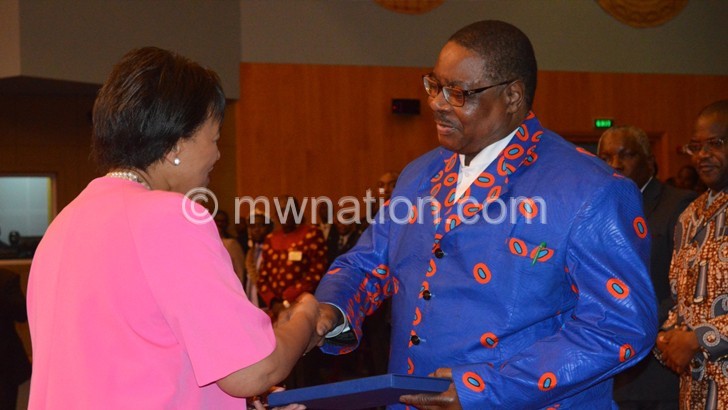Presidency faulted on corruption fight
Delegates to last week’s two-day National Anti-Corruption Conference have mentioned the presidency as the office that needs to demonstrate that fighting corruption is possible, recommendations and resolutions have shown.
Ministry of Justice and Constitutional Affairs, the organisers of the meeting held under the theme Corruption in Malawi: Perception or Reality?, have since received criticism from delegates and observers for failing to acknowledge the recommendations and resolutions when President Peter Mutharika closed the meeting on Friday.

The conference set-up saw delegates grouped into areas and sectors where action could be taken to address corruption in the country. The sectors and areas included policy and legislation, institutional framework, procurement and politics.
Sentiments from the group on politics, politicians and corruption were that the laws give the country’s President too much comfort, especially on immunity from prosecution during the tenure of office.
The delegates were also particularly concerned with the treatment of the Anti-Corruption Bureau (ACB) on appointments and removals of the director general as well as funding and personnel shortfalls.
Further, the conference identified the electoral process, which encourages handouts and lack of legislation on party financing, as other areas which leave room for corruption in politics.
The recommendations read in part: “The presidency should walk the talk. The ACB should do their work without interference from the presidency. The presidency must be committed to enforcing the laws of the country.”
On politicians, it was further recommended: “The leadership should come out with declaration of assets on a yearly basis and make declared assets public.”
Currently, the law on declaration of assets of public officers states that the public can request for information on the declared assets, an arrangement that is beyond the reach of Malawians as the office operates from Lilongwe only.
Responding to the theme of the conference Corruption in Malawi: Perception or Reality?, the conference recommendations and resolutions which Minister of Justice and Constitutional Affairs Samuel Tembenu should have presented on the final day of the conference shows that whether corruption was a perception or reality was a rhetorical question.
The view of the group on procurement was that inadequate and untimely funding to government ministries, departments and agencies was contributing to corruption.
But the delegates felt that corruption could not be rooted out in public procurement. They said it can only be reduced.
Among the recommendations were that laws on public procurement be reviewed to encourage maintenance of a paper trail in the procurement chain.
“Provide adequate checks and balances within the Office of the Director of Public Procurement and procuring entities, ensure integrity of procurement personnel and removal of middlemen,” the recommendations read.
The policy and legislation saw the need to review legal instruments, laws and strategies to ensure public servants are recruited on merit.
“We need to encourage whistle-blowing; review the law on whistle-blowing and revisit the penalties on protection of whistleblowers. The current fine of K50 000 is not enough,” read the recommendations.
The group saw no problem with injunctions halting prosecution or investigations of individuals on corruption-related charges.
“However, for injunctions against government, there is need to beef up the number of lawyers. The lawyers need to be properly incentivised so they do not leave the ministry,” the report reads.
There were further recommendations for barring people convicted of corruption from holding public office and that companies involved in corruption should be blacklisted.
It was further felt that the youth, ordinary people, traditional leaders, faith-based organisations and professional bodies have been left out of the corruption fight.
In an interview on Tuesday, Tembenu said his ministry would be examining the recommendations and advise the Cabinet accordingly.
He committed: “However, for those that are implementable immediately, the government will proceed to do so.”
But one of the delegates, activist Billy Mayaya, said the conference would be deemed a success if the recommendations came up with a new workable anti-corruption strategy following the poor implementation of the strategy adopted in 2008.
He said: “The government should act on Cashgate suspects and focus on recovery and forfeiture of property of those convicted of corruption cases. The coming development strategy should have anti-corruption strategies as one of the key pillars.” n





